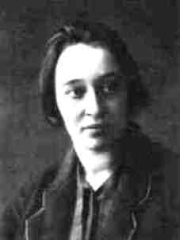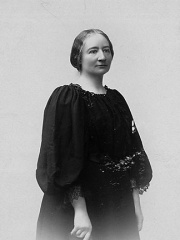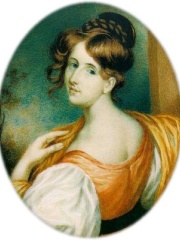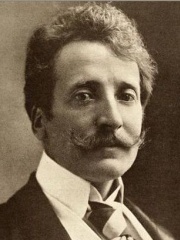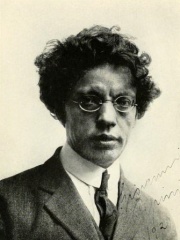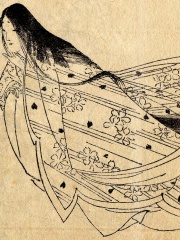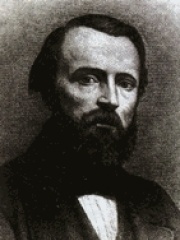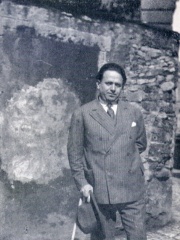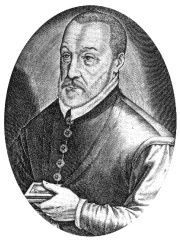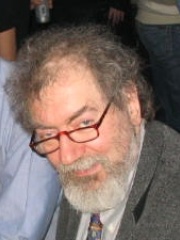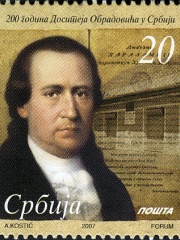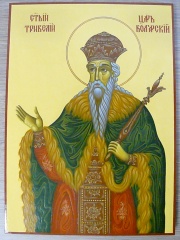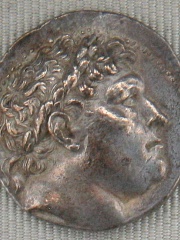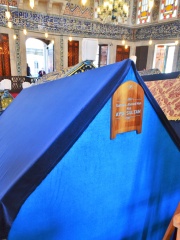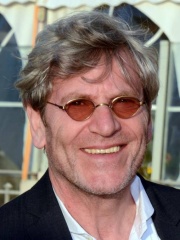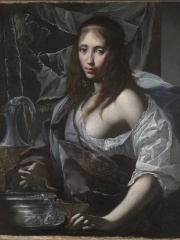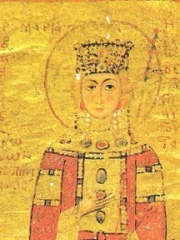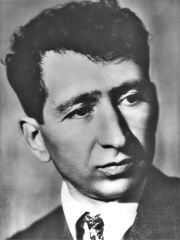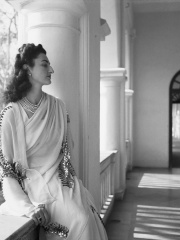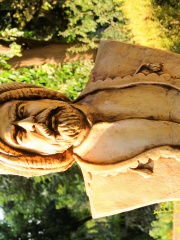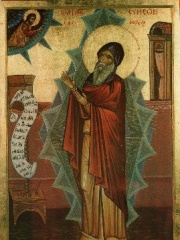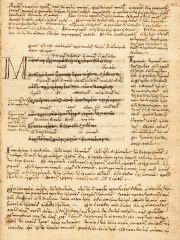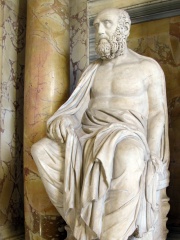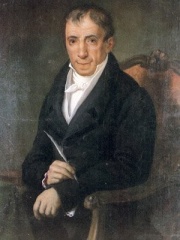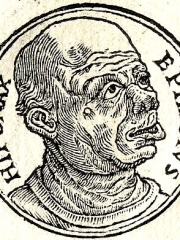Schriftsteller
Alcman
611 BC - 601 BC
DE.WIKIPEDIA PAGE VIEWS (PV)
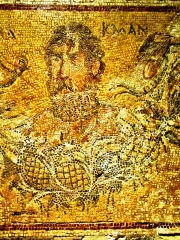
 Alcman
Alcman
Seine Biografie ist in 38 verschiedenen Sprachen auf Wikipedia verfügbar (gestiegen von 37 im Jahr 2024). Alcman ist der 1,286th beliebteste Schriftsteller (gesunken vom 1,159th im Jahr 2024), die 486th beliebteste Biografie aus Türkei (gesunken vom 432nd im Jahr 2019) und der 33rd beliebteste aus der Türkei Schriftsteller.
Memorability Metrics
Page views of Alcman by language
Among Schriftstellers
Among schriftstellers, Alcman ranks 1,286 out of 7,302. Before him are Nadezhda Mandelstam, Ellen Key, Elizabeth Gaskell, Georges Rodenbach, Giovanni Papini, and Ono no Komachi. After him are Ibn al-Nadim, Pierre Larousse, Kurt Tucholsky, Blaise de Vigenère, Michael Jackson, and Dositej Obradović.
Most Popular Schriftstellers in Wikipedia
Go to all RankingsNadezhda Mandelstam
1899 - 1980
HPI: 66.47
Rank: 1,280
Ellen Key
1849 - 1926
HPI: 66.47
Rank: 1,281
Elizabeth Gaskell
1810 - 1865
HPI: 66.46
Rank: 1,282
Georges Rodenbach
1855 - 1898
HPI: 66.46
Rank: 1,283
Giovanni Papini
1881 - 1956
HPI: 66.45
Rank: 1,284
Ono no Komachi
825 - 900
HPI: 66.45
Rank: 1,285
Alcman
611 BC - 601 BC
HPI: 66.44
Rank: 1,286
Ibn al-Nadim
1000 - 995
HPI: 66.44
Rank: 1,287
Pierre Larousse
1817 - 1875
HPI: 66.44
Rank: 1,288
Kurt Tucholsky
1890 - 1935
HPI: 66.44
Rank: 1,289
Blaise de Vigenère
1523 - 1596
HPI: 66.43
Rank: 1,290
Michael Jackson
1942 - 2007
HPI: 66.43
Rank: 1,291
Dositej Obradović
1742 - 1811
HPI: 66.43
Rank: 1,292
Contemporaries
Among people born in 611 BC, Alcman ranks 1. Among people deceased in 601 BC, Alcman ranks 1. After him is Madius.
Others Born in 611 BC
Go to all RankingsOthers Deceased in 601 BC
Go to all RankingsIn Türkei
Among people born in Türkei, Alcman ranks 486 out of NaN. Before him are Tervel of Bulgaria (675), Eumenes I (-250), Ayşe Sultan (1605), Tchéky Karyo (1953), Artemisia II of Caria (null), and Stephanus of Byzantium (501). After him are Callippus (-370), Maria of Antioch (1145), Yeghishe Charents (1897), Dürrüşehvar Sultan (1914), George Akropolites (1217), and Anna of Trebizond (1350).
Others born in Türkei
Go to all RankingsTervel of Bulgaria
POLITICIAN
675 - 721
HPI: 66.56
Rank: 480
Eumenes I
POLITICIAN
250 BC - 241 BC
HPI: 66.56
Rank: 481
Ayşe Sultan
POLITICIAN
1605 - 1660
HPI: 66.56
Rank: 482
Tchéky Karyo
ACTOR
1953 - 2025
HPI: 66.54
Rank: 483
Artemisia II of Caria
POLITICIAN
HPI: 66.47
Rank: 484
Stephanus of Byzantium
POLITICIAN
501 - 600
HPI: 66.46
Rank: 485
Alcman
WRITER
611 BC - 601 BC
HPI: 66.44
Rank: 486
Callippus
MATHEMATICIAN
370 BC - 300 BC
HPI: 66.43
Rank: 487
Maria of Antioch
COMPANION
1145 - 1182
HPI: 66.41
Rank: 488
Yeghishe Charents
WRITER
1897 - 1937
HPI: 66.39
Rank: 489
Dürrüşehvar Sultan
POLITICIAN
1914 - 2006
HPI: 66.39
Rank: 490
George Akropolites
POLITICIAN
1217 - 1282
HPI: 66.39
Rank: 491
Anna of Trebizond
POLITICIAN
1350 - 1342
HPI: 66.38
Rank: 492
Among Schriftstellers In Türkei
Among schriftstellers born in Türkei, Alcman ranks 33. Before him are John Malalas (491), Mimnermus (-670), Publilius Syrus (-100), Ahmad Khani (1650), Symeon the New Theologian (949), and John Tzetzes (1110). After him are Yeghishe Charents (1897), Hieronymus of Cardia (-390), Aelius Aristides (117), Adamantios Korais (1748), Callinus (-680), and Hipponax (-600).
John Malalas
491 - 578
HPI: 67.91
Rank: 27
Mimnermus
670 BC - 600 BC
HPI: 67.56
Rank: 28
Publilius Syrus
100 BC - 100 BC
HPI: 67.47
Rank: 29
Ahmad Khani
1650 - 1707
HPI: 67.36
Rank: 30
Symeon the New Theologian
949 - 1022
HPI: 66.91
Rank: 31
John Tzetzes
1110 - 1180
HPI: 66.58
Rank: 32
Alcman
611 BC - 601 BC
HPI: 66.44
Rank: 33
Yeghishe Charents
1897 - 1937
HPI: 66.39
Rank: 34
Hieronymus of Cardia
390 BC - 250 BC
HPI: 66.32
Rank: 35
Aelius Aristides
117 - 189
HPI: 66.27
Rank: 36
Adamantios Korais
1748 - 1833
HPI: 65.81
Rank: 37
Callinus
680 BC - 700 BC
HPI: 65.65
Rank: 38
Hipponax
600 BC - 600 BC
HPI: 65.05
Rank: 39
